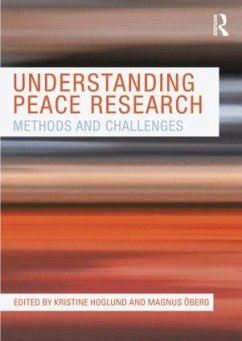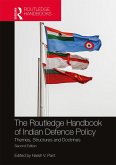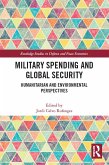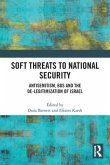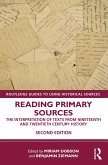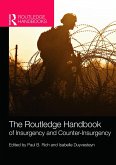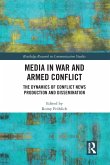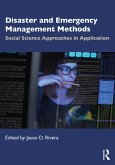This textbook provides a comprehensive overview of different methods and sources of information-gathering for peace and conflict students and researchers, as well as the challenges presented by such work.
Research on conflict-ridden societies carries special challenges for the collection and evaluation of information about the conflict and its actors. First, due to the nature of information emerging, incentives to misrepresent and propaganda is common. News coverage is sometimes poor and reporting is often incomplete, selective and biased. Second, the sensitivity of the topic and the questions posed in peace and conflict research means that access to and the security of informants can be a problem.
Peace and conflict research as a discipline encompasses a number of different approaches for obtaining empirical information which serve as a basis for analyzing various research topics. This book provides a comprehensive overview of different methods and sources ofinformation-gathering for students and researchers, as well as the challenges presented by such work. It offers:
tools for evaluating sources and information
suggestions on where different types of information can be found
advice on using different types of sources, including news reports and written narratives
practical guidelines for constructing large-scale datasets
insights and guidelines for comparative fieldwork, in-depth interviews, focus groups, and surveys
reflection and discussion on important ethical concerns in peace research
This book will be of much interest for students and researchers of peace and conflict studies, conflict resolution, war and conflict studies, development studies, security studies and IR, as well as for NGO workers/researchers.
Kristine Höglund is Associate Professor at the Department of Peace and Conflict Research, Uppsala University. She has a PhD in Peace and Conflict Research from Uppsala University Sweden (2004). She is author of Peacemaking in the Shadow of Violence.
Magnus Öberg is Associate Professor at the Department of Peace and Conflict Research, Uppsala University, and Associate Editor of the Journal of Peace Research (since 2006). He has a PhD in Peace and Conflict Research from Uppsala University (2003) and is co-editor of Resources, Governance, and Civil Conflict (Routledge, 2008).
Research on conflict-ridden societies carries special challenges for the collection and evaluation of information about the conflict and its actors. First, due to the nature of information emerging, incentives to misrepresent and propaganda is common. News coverage is sometimes poor and reporting is often incomplete, selective and biased. Second, the sensitivity of the topic and the questions posed in peace and conflict research means that access to and the security of informants can be a problem.
Peace and conflict research as a discipline encompasses a number of different approaches for obtaining empirical information which serve as a basis for analyzing various research topics. This book provides a comprehensive overview of different methods and sources ofinformation-gathering for students and researchers, as well as the challenges presented by such work. It offers:
tools for evaluating sources and information
suggestions on where different types of information can be found
advice on using different types of sources, including news reports and written narratives
practical guidelines for constructing large-scale datasets
insights and guidelines for comparative fieldwork, in-depth interviews, focus groups, and surveys
reflection and discussion on important ethical concerns in peace research
This book will be of much interest for students and researchers of peace and conflict studies, conflict resolution, war and conflict studies, development studies, security studies and IR, as well as for NGO workers/researchers.
Kristine Höglund is Associate Professor at the Department of Peace and Conflict Research, Uppsala University. She has a PhD in Peace and Conflict Research from Uppsala University Sweden (2004). She is author of Peacemaking in the Shadow of Violence.
Magnus Öberg is Associate Professor at the Department of Peace and Conflict Research, Uppsala University, and Associate Editor of the Journal of Peace Research (since 2006). He has a PhD in Peace and Conflict Research from Uppsala University (2003) and is co-editor of Resources, Governance, and Civil Conflict (Routledge, 2008).
'At last we have a book that addresses the varied research needs of peacemakers. This'book draws on the Uppsala Conflict Data Program's experience in systematic data collection but is careful to include field work in conflict settings, and to acknowledge their complementarity. A timely publication.' Prof. John Darby, Kroc Institute, Notre Dame University
'The editors and authors of this volume have produced a comprehensive overview of peace research methods, ranging from historical source criticism and field-work in war-torn societies to the setting up of databases for the statistical study of conflict. The result is a book that should prove extremely valuable in teaching as well as in research on conflict and peace, while also being accessible to a wider public.' Nils Petter Gleditsch, Research professor, Peace Research Institute Oslo (PRIO)
'It is a rare moment when a book arrives that fills so great a need and then also does so with such care and quality. Understanding Peace Research walks researchers through the difficulties of researching violent conflict, provides superb instruction on a wide range of techniques and sources of information in such conditions, and answers the impassioned plea from those doing field research for guidance on its ethical challenges as well.' Professor Susan L. Woodward, The Graduate Center, CUNY
'The editors and authors of this volume have produced a comprehensive overview of peace research methods, ranging from historical source criticism and field-work in war-torn societies to the setting up of databases for the statistical study of conflict. The result is a book that should prove extremely valuable in teaching as well as in research on conflict and peace, while also being accessible to a wider public.' Nils Petter Gleditsch, Research professor, Peace Research Institute Oslo (PRIO)
'It is a rare moment when a book arrives that fills so great a need and then also does so with such care and quality. Understanding Peace Research walks researchers through the difficulties of researching violent conflict, provides superb instruction on a wide range of techniques and sources of information in such conditions, and answers the impassioned plea from those doing field research for guidance on its ethical challenges as well.' Professor Susan L. Woodward, The Graduate Center, CUNY

